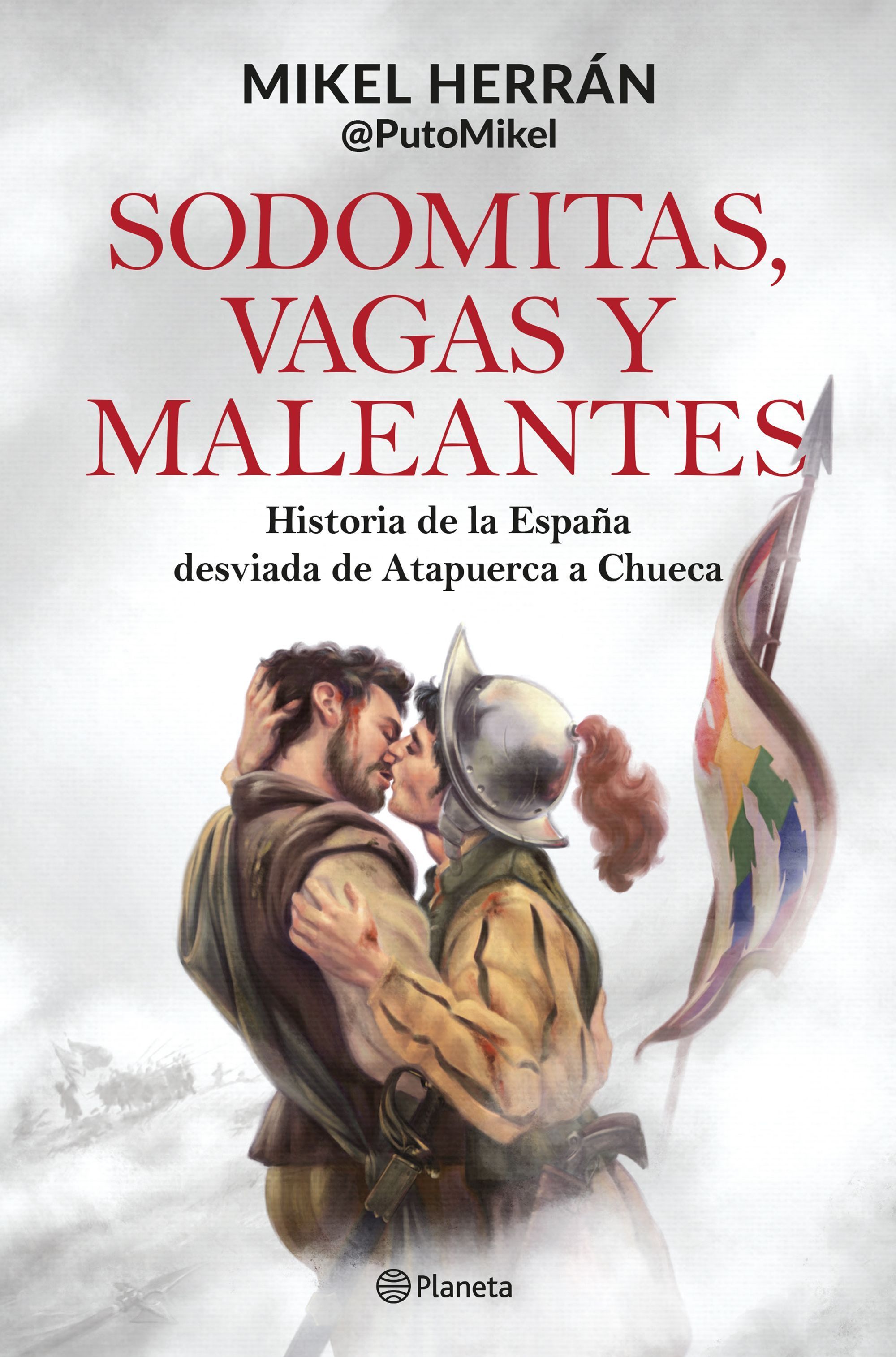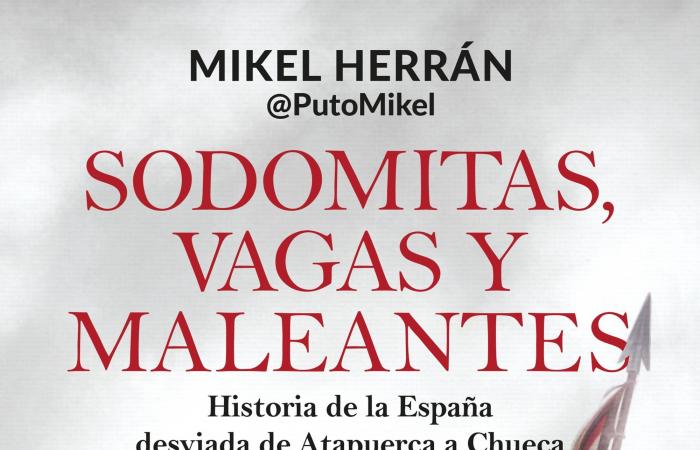A social contagion. A danger to the nation, society or marriage. An immoral, corrupt act, guided by fashion. This is how the LGTBIQ+ history of Spain has been (mis)told or, better said by its author, the History of “deviant” Spain. Sodomites, vagrants and criminals (Planeta), the new book by writer Mikel Herrán, illustrates the history of “the deviant” and how, despite repression, they have flouted the rules and created their own networks and spaces.
“This is a story of deviants: the faggot, the lesbian, the sodomite, the invert, the transvestite, the hermaphrodite…; those who challenged the norm of desire, gender or sex.” This is how the author describes the story he intends to tell, a journey through history to meet those who have not appeared in books through a reading. queer of traditional history.
From Atapuerca to Chueca, Herrán recounts the entire process of repression that has been exerted on the LGTBIQ+ collective since prehistory—even before the existence of these acronyms—and explains what has not been told. “(Pre)history has an assumed subject, and that tends to be a man, cis and hetero,” says Herrán.
This assumption of sex means that, for example, when the remains of a hominid are found and despite the difficulty of sexing it, it is usually determined by default as a man. A clear example is the famous Gran Dolina boy who, after recent anatomical studies, has been shown to be “actually the Gran Dolina girl.” “Sex and gender have always played a regulatory role in society. For example, in the colonization of America, sexual dissidence was used as a justification,” explains Herrán for elDiario.es.
A historical review of the different sexual and gender expressions that, for one reason or another, have been assumed in a specific way far from the reality demonstrated by feminist anthropology. From the presence of women in cave paintings to unknown sexual orientations and gender identities of some of the most repeated names in history, all of this has been omitted throughout humanity, despite the existence of evidence.
“Deviant” Spain
Mikel Herrán is, in addition to being a writer, a doctor in Archeology and a disseminator of History through his social media profile @PutoMikel. Throughout his book and in his own words, he prefers to use the term “deviant” because it is a fluid word, not a stable label or identity. “Deviant has always been understood outside of a changing norm. It allows us to understand how sexuality has been constructed,” says Herrán.
In prehistory not everything was as it is today. If we base ourselves on popular culture, the renowned comedy The Flintstones It would not tell the reality of family relationships, it only “transports our stereotypes to the past.” “Gender existed applied to the division of tasks, but not as we understand it now, as a mechanism of power,” says Herrán.
Kinaids, Europrocts either malakos. These were all ways of referring to homosexuality in ancient times. A sexual orientation that, depending on the society and culture, was viewed differently. In some, having relations with the same sex was different and favourable to “behaving like a homosexual or in an effeminate manner”. A concept known today as plumophobia.
The word sodomy was a creation of the Church to establish as a sin any sexual encounter that is far from the reproductive objective. Mikel Herrán talks in his book about anal sex and how in many cultures it was a practice that, at certain times and places in history, was not so related to homosexuality and sin, as long as it adequately respected social position and hierarchy. A practice that could be between people of the same sex, but also between men and women.
The limits of dissent

The great figures in the history of Spain do not escape entering the pages of this book. Mikel Herrán writes about characters like Francisco de Goya and how his sexuality has been assumed despite there being evidence that could prove otherwise. However, the author does not intend to focus on the sexuality of great historical figures, but rather to highlight the assumption that exists about fitting into the norm.
“Through Goya, and the evidence of his desire for a man, we can observe the repression he may have suffered. What he could or could not do in his time and the limits of sexual dissent. However, I cannot say that Goya was homosexual or bisexual, they are labels that did not exist then,” says Herrán.
This book takes us on a journey to the present day, passing through the Franco era and the democratic transition and the elements that determined the conception of the LGTBIQ+ collective during those years. The HIV crisis, the appearances of transsexual figures like Cristina Ortiz ‘La Veneno’ in programs like Tonight we cross the Mississippi or the creation of safe places in the center of several cities, such as the case of Chueca, are the last touches of a book that draws a complete x-ray that looks back at how sexuality and gender have been instruments of repression.
Vagrants and thugs
Title, Sodomites, lazy people and thugs, It has its antecedents in a controversial political decision. The Law of Vagrants and Maleantes, originating in 1933, was a law approved during the Second Republic, which would later be modified by the Franco dictatorship to exercise repression against homosexual people. Two words that Herrán recovers as a symbol of the repression that the group has suffered in various historical periods not so distant from the present.
In fact, it was not until 1990 that the World Health Organization (WHO) stopped including homosexuality in the International Classification of Diseases (ICD) as a mental illness. However, despite the cessation of this consideration by the WHO, we cannot forget that homosexuality continues to be punished and a cause of persecution in dozens of countries around the world.
“With lazy people, thugs, faggot or dyke, what I try to do is use those terms that have traditionally been used against the group and from those in power. We are not a modern invention, nor a fad. These accusations have been made for centuries, with different meanings,” concludes Herrán.



